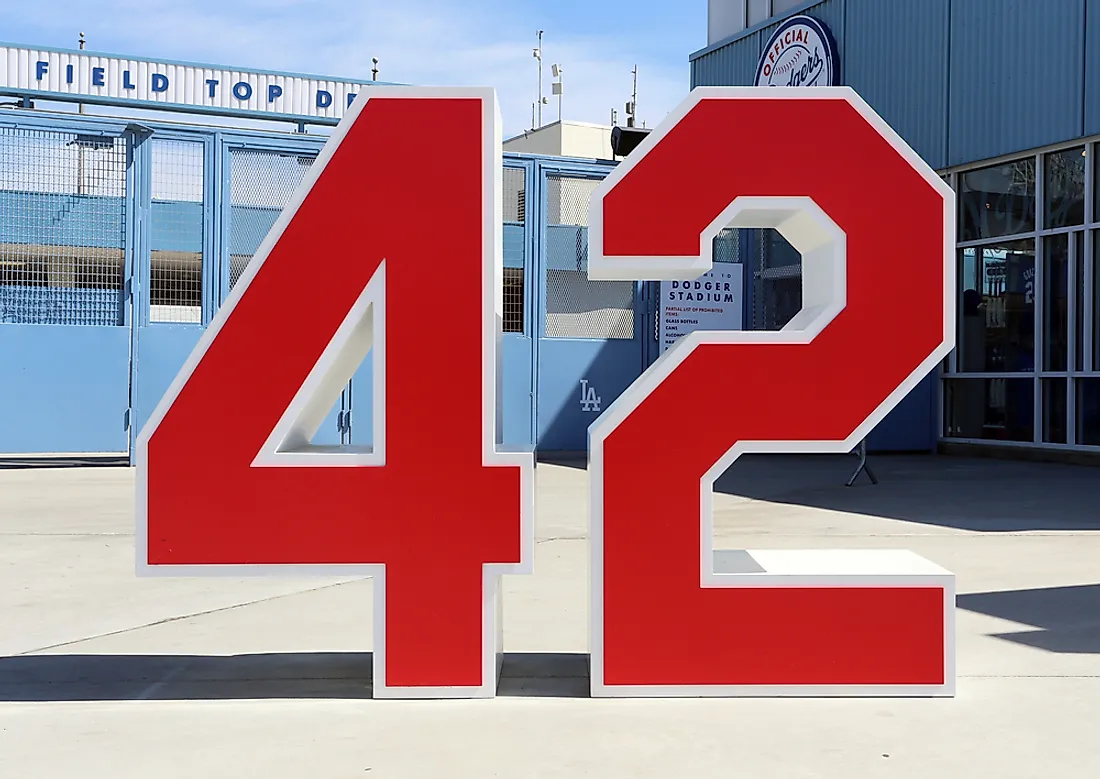Jackie Robinson - Important Figures in US History

Jackie's debut in the major league brought an end to the baseball color line, which was a sixty years period of segregation in professional baseball. He fought for equality in numerous ways including his professional success, and he is recognized as a legend globally. The post-long ball era in baseball is also accredited to Robinson.
Early Life
Jack Roosevelt Robinson was born in the city of Cairo in Georgia on January 31, 1919. He was named Roosevelt after President Theodore Roosevelt who died on January 6, 1919. Jack was the last born in a family of five children, and his parents were Jerry and Mallie Robinson. In 1920, his father left the family, and his mother relocated the children to Pasadena, California, where she worked odd jobs while raising them. Jackie's athletic prowess was recognized during his high school years at the John Muir High School. His older brothers Matthew (Mack), who was an accomplished athlete, and Frank motivated him to pursue his passion for sports.
Career
Robinson launched his professional baseball career in 1944. His first offer was a $400 contract with the Kansas City Monarchs, which played in the Negro Leagues. He made his debut in the minor league on April 18, 1946, with the Montreal Royals and he led the team to a 14-1 victory against the Jersey City Giants. In that year, Jackie led the International League, and he was awarded the Most Valuable Player title. At the start of the 1947 season, the Dodgers called him up to the Major leagues, and in his debut game, he led the team to a 5-3 victory. Robinson played in the major league for ten seasons with the Brooklyn Dodgers. During this period, he played in six All-Star Games, and his team participated in six World Series.
Major Contributions
Jackie Robinson is one of America's most important civil rights figures. He is famous for being the first black baseball player to play in the International League. When he confronted the color line in baseball, Jackie helped set up a foundation for the civil rights movement. His success on the field was a great inspiration for Black Americans as it opened their eyes to endless possibilities. The Major League awarded him the Baseball Rookie of the Year award at the end of the 1947 season. Robbie was the National League's Most Valuable Player in the 1949 season and in that year, baseball fans voted him as the starting second baseman for the All-Star Game. It was the first racially integrated All-star Game.
Challenges
Jackie joined the Montreal Royals, an affiliate of Brooklyn Dodgers, on October 23, 1945, a time when black players were subjected to extreme racial abuse. In an interview before his signing, the club president and general manager of the Brooklyn Dodgers, Branch Rickey, asked him if he could withstand the racial discrimination without fighting back. Jackie suffered racial prejudice on several accounts in his life, but he managed to rise above the bias due to his talent and outstanding abilities on the field. His success made him receive numerous death threats, but they did not distract him from baseball nor dissuade him from publicly criticizing racial issues.
Death and Legacy
Jackie died of cardiac attack on October 24, 1972, at the age of 53 years at his home in North Stamford, Connecticut. He became the first African American player to be inducted into the National Baseball Hall of Fame. Major League Baseball (MLB) retired Jackie's jersey number, 42, throughout the major league in 1997 in honor of the athlete's contributions to the sport. In 2004, the MLB also designated April 15 as Jackie Robinson Day, to commemorate Jackie's debut in the league.











